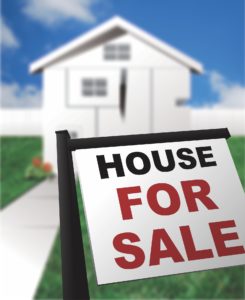When is the best time to sell my home? 
Every real estate market is different, therefore, the best time to sell a home will be different from the real estate community to the real estate community.
In most cases, the spring months are the best time to be selling a home.
Since every home seller’s situation is different, you should discuss the timing of your home sale with your Realtor. In some cases, selling a home during the fall and winter months actually may be better than waiting until the spring real estate market. This is due to a combination of many factors including lower competition and those serious buyers are always looking for a home, just to mention a couple of factors.
How is the real estate market right now?
A frequently asked question from home sellers before listing their home for sale is related to the local real estate market.
There are many market indicators that a top producing Realtor should be able to share with you to help explain the condition of the local real estate market. One of the most important indicators of market conditions is the average days on the market. The average days on market can indicate to a seller how quickly homes are selling when listed for sale.
What steps should I take to prepare my home for sale?
Not properly preparing a home for sale can put a homeowner at a huge disadvantage.
The expression “You never get a second chance to make a first impression” is absolutely true when it comes to selling a home. When selling a home you must be sure that your home presents itself in the best possible light. Making sure clutter is at a minimum, freshly painting rooms, installing new carpeting, or ensuring odors are non-existent are just a handful of things that should be done before listing your home for sale.
What should I disclose to potential buyers?
When selling a home, it’s important you disclose to potential buyers anything you are aware of in your home. Nobody likes “getting the raw end of a deal” when it comes to buying a home, car, or anything for that matter. If you’re aware of defects with a roof, appliance, or home in general, you’re always going to be better off being honest and upfront. If you’re aware of defects, whenever possible, fixing them before going on the market is best. This can avoid potential issues and/or lawsuits once your home is under contract, after inspections, and even years after you have sold your home.

How much is my home worth?
Most homeowners want to know how much their home is worth. One of the best perks to owning a home is the ability to make it your own and improve it how you’d like. Finding out how much your home is worth is not something that should be done without asking a top local Realtor.
Why is the assessed value different than what you say my home is worth?
The assessed value is not the same as market value or appraised value. There are many homes that could be sold for significantly more than an assessed value and others that may be sold for significantly less. The assessed value of a home is used for the purpose of taxes in your local municipality. The assessed value of a home is multiplied by the local tax rate to determine what your yearly taxes are. The assessed value has no impact on how much your home is worth to a potential buyer in the marketplace.
Unfortunately, there are many homebuyers who believe that a home that is listed higher than the assessed value is overpriced. This is the furthest from the truth. A home buyer’s also question if something is wrong with a home if the list price is much less than the assessed value. The bottom line is the assessed value has no impact on how much your home is worth. There are homeowners who don’t pay attention to their assessed value, just to find out their municipality has been slowly raising it, year after year, even though the market value hasn’t been increasing.
What is the difference between a list price and sale price?
This frequently asked question can be answered very easily. The list price is the price a home is currently listed for sale at. The sale price is the price a home is sold at. A top Realtor should be able to suggest a list price that ends up being very close to the final sale price.
How do you determine how much my home is worth?
There are a handful of methods that Realtors use to determine the value of a home. The most common method of determining the value of a home is by completing a comparative market analysis. A comparative market analysis is an in-depth evaluation of recently sold “comparable” homes in the past 6-12 months.
 Should I price my home higher to leave room for negotiations?
Should I price my home higher to leave room for negotiations?
This frequently asked question often leads to a common pricing mistake that sellers make. Many sellers believe they should price their home $5,000 higher than what a top Realtor suggests to leave room for negotiations and low-ball offers. A well-priced home will sell quickly and will sell for close to the listing price. There is no need to leave room for negotiations, as today’s home buyers are very well educated. A seller who prices their home high to leave room for negotiations can actually be costing themselves more money than if they price it to reflect the suggested market value.
What is a sale contingency?
Some buyers decide when buying a home they would like to find a suitable property before selling their existing home. A sale contingency is a common contingency that sellers see in purchase offers. A sale contingency means that the potential buyer of a home must sell their existing home, before being able to purchase the “new” home.
How does the inspection phase work?
Inspections are another common contingency that buyers make their purchase offers subject to. There are many different types of inspections and tests that a buyer has the right to perform. In most cases, inspections are at the expense of the buyer. They have a specified number of days to complete the inspections and also a specified number of days to either remove the inspection contingencies or request the seller address findings from the inspections.

